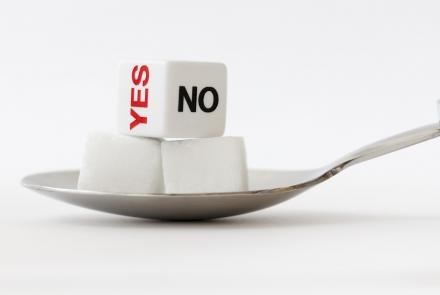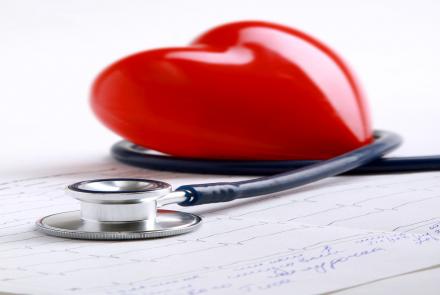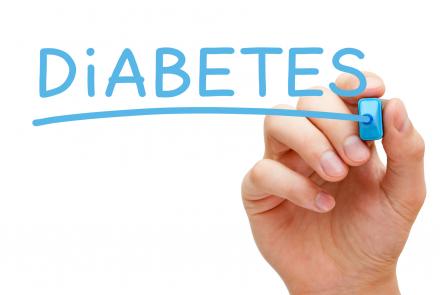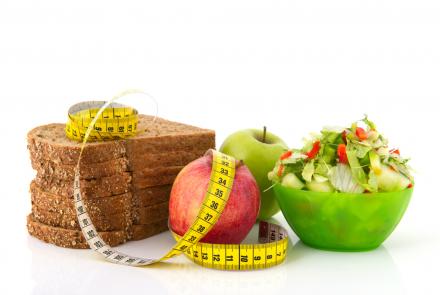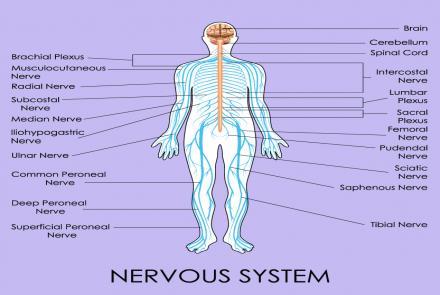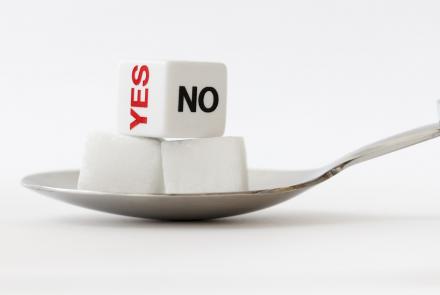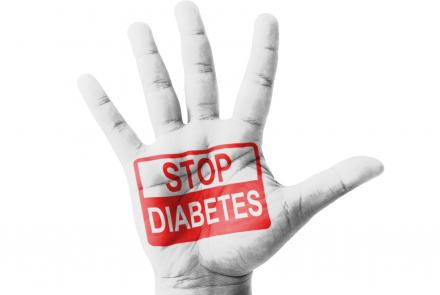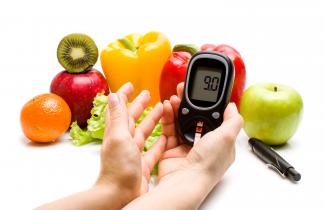
Based on a discussion with Dr. Venkat Rao, Diabetologist
1. My mother has diabetes. Should I get my blood sugar checked? I am now 30 years old.
Everybody should get their blood sugar tested once a year after the age of 30, irrespective of whether or not there is a family history of diabetes. This is especially true for Indians as India has a high incidence of diabetes.
If you have a family history of diabetes with a tendency of early occurrence; if you are obese (i.e with BMI 25 and above) and don’t have adequate physical activity, get yourself tested earlier between the ages of 20-25. BMI of 23.5 and above is considered overweight.
Physical activity means that you are active for at least 45 minutes of intentional exercise a day. Intentional exercise can be any of the following:
- Cardiometabolic exercise - jogging, cycling, brisk walking i.e. a minimum speed of 6 km/hr for any age group
- Resistance exercise - gym, lifting weights
- Flexibility exercise - yoga
A walk or a stroll in an office environment is not exercise.
2. I have high blood sugar. Can I get hypoglycaemia? What is it? What are the symptoms? What should I do to stabilise my blood sugar? Can I prevent it from happening?
Hypoglycaemia is low blood sugar. Most commonly, it occurs as a complication of treatment of diabetes. Anybody can experience hypoglycaemia when on medication hence the doctor has to individually titrate the medication. (Titrate refers to getting the right concentration of the medication.) Hypoglycemia is seldom seen in non-diabetic persons! Causes include overproduction of insulin, alcohol, hormonal deficiences, side-effects of medication and poisons, prolonged fasting, inborn errors of metabolism, and organ failure. The responses vary, based on the constitution of the individual. Excessive hunger, tremors, light-headedness are some of the symptoms of hypoglycemia.
There are several ways to prevent hypoglycemia from occurring:
- Stick to your medication time and never miss a dose.
- Keep a fixed schedule for meals (correlated to your medication) and never skip or reduce meal portion.
- Do not over exercise. If you do exercise, check your blood sugar and adjust your medication or have a smal snack before exercising.
- Avoid heavy drinking and if you do drink in moderation, always have a snack with it.
3. What is hyperglycaemia? What are the symptoms? What should I do to improve the situation? How do I prevent it from happening?
Hyperglycaemia occurs when the blood sugar goes very high, beyond 250-300mg/dl. This can occur when the body does not have enough insulin or has become resistant to the insulin produced (unable to use it).
The symptoms are, unfortunately, similar to hypoglycaemia -- namely, excessive thirst, hunger, unintentional weight loss, a wound not healing. It is usually detected when the patient is tested for some other problem and is often detected late.
Exercising (unless ketones are present in your urine), eating less, or changing medication plan should all help reduce the hyperglycemia. The best way to prevent it is by managing your diet and medication properly
4. What is the difference between a diabetologist and an endocrinologist? Who should I consult if I suspect I may have diabetes?
Diabetology is a sub-speciality of endocrinology. A diabetologist is a specialist physician trained in diabetes, which is an illness of the pancreas gland. An endocrinologist is a specialist in glands and hormones.
If you suspect you are diabetic, consult a general practitioner to get a blood test done. Your family physician can also be consulted for testing and even for managing diabetes, if you test positive. With India’s huge population of diabetics, it is not practical for everybody to consult a diabetologist in the beginning.
Consult a diabetologist for further medication.
5. I’ve just been diagnosed with diabetes. I have heard that diabetes affects the heart, kidneys, feet and eyes. Do I need to get these tested immediately? What kind of tests should I have and how often?
Getting tested immediately is necessary. The most important reason for treating diabetes is to avoid complications that affect the heart, the kidneys, the feet and the eyes. Teeth are also commonly affected. A routine annual screening is a must.
Sometimes diabetes with complications is detected in the first examination itself. Thus early detection is possible with regular screening.
The common tests are:
- ECG to check the heart
- creatinin and urine microalbumin evaluation to test the kidney
- Retinal testing or retinal photograph by an ophthalmologist
- Examination of the feet by a physician
Your blood has to be tested initially. No urine tests are done nowadays. If warranted by your blood test results, these further tests are advised:
Blood Glucose Analysis, which measures
- FBG - Fasting Blood Glucose
- PPBS - Post Prandial Blood Sugar
These two readings are used to interpret whether a person is diabetic or not and are solely used for screening.
A diabetic has the following readings:
- Fasting Blood Sugar >126 mg/dl and
- Post Prandial Blood Sugar of >200 mg/dl.
IGT - Impaired Glucose Tolerance - is seen in an individual who is borderline or pre diabetic. IGT is a phase between the screening (see above) and OGTT (see below). The readings for such a patient are between 100-126 mg/dl Fasting Blood Sugar and between 140-199mg/dl Post Prandial Blood Sugar.
OGTT - Oral Glucose Tolerance Test. When the physician is in doubt, the patient is administered a glucose load of 75g on an empty stomach after which his blood sample is analysed. This challenge test is to see how the body reacts to the glucose and makes it easier for the doctor to interpret the result.
Screening of FBG and PPBS is done in cases where:
a. family history of diabetes exists
b. the patient exhibits a tendency to be diabetic
c. the readings show that he/she is close to being diabetic
d. he/she is not careful about following the recommended precautions.
6. As a diabetic, do I have to be especially careful if I catch a cold or fever? Why is that and what should I do if I fall ill?
Everybody who is ill should monitor their health and take adequate precautions. That said, having Diabetes increases your chances of having frequent infections and slows the recovery period. This is because high blood sugar levels impair the body's natural immune system and capacity to fight infections. Since, Diabetes reduces blood flow to extremities, the recovery time is significantly decreased. If you fall ill, don't panic, take care of the infection immediately and consult you doctor for appropriate treatment options.
7. What is diabetic ketoacidosis?
Let me answer this by explaining what happens to a diabetic person. A diabetic is a person who has high blood sugar because of these factors:
- his/her body does not produce enough insulin or
- the body’s cells do not respond properly to insulin or
- both of these.
Sugar or glucose is a fuel needed for the functioning of cells in the body. The way, via media, for glucose to enter the cell is insulin. When there is no insulin, the glucose cannot enter the cells. Major organs such as the brain need glucose in order to function and cannot do without it even for a second. Our bodies have evolved such that in case of low insulin, when glucose cannot be used, the body switches from glucose utilisation to fat utilisation. The body starts breaking down the fats. Once the fats break down, a chemical reaction occurs which converts these fats into glucose. A continuous supply of nutrition is then available for the brain.
Keto acids are the by-product of the process called ketoacidosis or the breakdown of fats to glucose. When this occurs, the acid level goes up in the body. The implication of increased acid levels is that the functionality of other organs is impaired and may trigger acute dehydration, irregular heart rhythms, electrolyte imbalance and other irregularities. Ketoacidosis usually occurs in Type 1 diabetes.
8. Do diabetics have to pay special attention to the kind of shoes they wear?
Yes. Wear comfortable and accommodative footwear. A diabetic with well controlled diabetes may not face many problems but, tight and pointed shoes should be avoided. High heeled shoes may be worn for a few hours in a day. Exercise caution if wearing them for longer periods.
Diabetics have to examine their feet regularly for anything unusual. Problems such as loss of sensation in the feet, bruises and calluses may occur.
9. In what way does exercise improve blood sugar levels?
Exercise leads to muscle contraction. During exercise, muscles need nutrition for which glucose is burnt. Hence more exercise leads to better glucose disposal.
10. I am an avid cyclist. Can my blood sugar drop too much if I exercise vigorously?
If you are non-diabetic, a drop in blood sugar will never pose a problem. Your body has an in-built mechanism to normalise sugar levels.
If diabetic, however, a drop in blood sugar can be problematic. Balance the drop in blood sugar with intake of carbohydrates in between your workout.
If insulin-dependent, blood sugar can drop immediately after a vigorous exercise. So have a small snack before the exercise and after.
If your exercise is very vigorous, such as cycling or playing football, have a small snackafter before, during and also after the activity since the body could be using glucose even 3-4 hours after you finish exercising.
11. Do I have to avoid all foods with sugar in it? For instance, even bread has some sugar in it. Do I have to stop eating bread?
It is never recommended that diabetics should stop eating any foods. They can eat everything - in moderation.
Most foods we eat, i.e. rice, wheat, fruits etc, are broken down into simple sugars which give us the required energy. The white sugar we add to our beverages and food is direct calorie, high-intensity diet. Today, due to modern eating habits, all our meals are high-calorie diets, which is an unhealthy eating pattern.
As far as possible, avoid sugar in your food since that is direct sugar. This advisory of a low- sugar diet is equally relevant for non-diabetics since nowadays many foods we eat contain unnecessary sugar. Where we can, we must try to reduce our sugar intake. Refined sugars and soft drinks are major culprits.
There are some myths about sugars and diabetic health foods in India that need to be debunked. For example, please know that:
- Jaggery and palm sugar are as bad as white sugar for diabetics!
- Bitter gourd is not a cure for diabetes!
Please consult a dietitian for details of foods that are healthy for your particular condition.
One positive factor about whole wheat bread is it hashigh fibre content compared to white bread (maida). Consuming whole wheat bread makes a person full earlier, which leads to eating less of it. Also, the nutritive value between the two kinds of breads is different. An equal measure of whole wheat bread is more nutritious than white bread.
For a non-diabetic individual, the kind of bread he eats is immaterial as long as he expends as much energy as he consumes. Since this rarely happens and people tend to consume more than they use up, it is better that they be aware of their diet.
12. I have recently been diagnosed with diabetes. Does this mean I can no longer eat out at restaurants? What should I look for in the menu?
Any calorie-laden food can result in diabetes. Foods such as burgers and juices are high calorie. You can continue to eat out provided you take care not to eat a high-calorie diet - which means that you should eat healthily prepared vegetables, fruits and whole grains.
After eating out and consuming extra calories, ensure your next meal is low-calorie.
Consult a dietitian for details based on your lifestyle and eating habits.
13. I love chocolates and sweets. Do I have to give them up altogether?
It is important to understand that diabetes is the result of overloading calories, not necessarily that of eating sugar. One need not completely stop eating chocolates and sweets altogether, but certainly minimise intake. Regarding chocolates, dark chocolate in moderation seems to be better than white chocolate.
Again, proper diet and exercise without wrong eating is essential to prevent and manage diabetes.
Please consult your dietitian for a diet suited to your lifestyle.
14. If I watch my diet and exercise, can I get rid of diabetes?
There is only 1-2% likelihood of reverting from diabetic to prediabetic stage. However, there is more than 30% chance of reversing from the prediabetic stage to being non-diabetic. However, any change in diet or exercise may tip the balance to a diabetic reading in the next test. Hence it pays to exercise caution.
One cannot stress enough the importance of regular screening to detect diabetes and of diet and exercise in managing diabetes correctly.
15. Will I have to stay on medication forever?
It is important that you stay on medication. If you are prediabetic and continue with proper exercise and diet, your doctor may decide to withdraw medication. This is completely dependent on your commitment to continuing the positive lifestyle changes you have made, your medical status at the time and the opinion of your doctor.
16. I have a high-stress job. Can this be affecting my diabetes?
Stress is one of the causative factors of diabetes. A family history of diabetes, being overweight, lack of exercise etc. are other triggers. Diabetes is a multi-factor ailment.
Every individual undergoes stress but the difference is in how one handles it and with what perspective he approaches his work schedule.
Diabetes is a lifestyle related disorder, which can be managed such that the patient leads a long and full life. When not managed, it can lead to multiple complications. With timely screening, complications due to diabetes can be avoided in 70% of cases.

